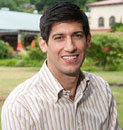
At times, I think the political and cultural columnist David Brooks has a little bit of Mediterranean blood flowing through his body (regardless of his Anglo-Saxon appearance). Time and time again Brooks puts together elegant arguments on the paradox of American living, why gun control is necessary, or, say, how most people struggle to find happiness. While I don’t agree with every opinion Brooks’ holds, I did enjoy a recent New York Time Op-Ed where he argues that we, as a society, should spend more time chasing what truly makes us happy versus material wealth (i.e., How to Lead a Happy Life or Live Like an Italian). The article got me thinking about how many of Italians I know have high levels of happiness (especially the ones living in Italy) and why they so easily grasp how to lead a good life.
It’s no secret that Europeans, generally speaking, have a higher quality of life than most Americans. The “European way of life” is known throughout the world as emphasizing family, food, and overall well being, while here in the United States the perception is that the more money one makes the better off he or she will live. Are the Europeans just freaks of nature high on multiple cups of espresso; after all, isn’t a flashy career more important than an afternoon siesta and a pre dinner aperitif?
The above questions beg the ultimate question; namely, why wouldn’t everyone want to live like an Italian (or their Europeans neighbors)? Are we too focused on capitalist models here in the United States training our best and brightest to become investment bankers versus well rounded individuals who have a passion for leading a happy life?
Prescribing how to lead a happy life is akin to telling someone how to dress or which religion to follow; that is to say, most folks don’t want to be told that they would be happier only if they did X, rather they want to discover their own path to smiling each and every day.
My advice is to listen to the latest psychological research on what makes people happy throughout the world and follow a little bit of Brooks’ advice. In turn, here’s a quick summary of how Brooks interprets the latest empirical findings from the new field of “happiness studies” and why living the “Italian way” may be more beneficial than chasing the almighty dollar (or living like an American):
- “Marital happiness is far more important than anything else in determining personal well-being. If you have a successful marriage, it doesn’t matter how many professional setbacks you endure, you will be reasonably happy.”
- “Poor nations become happier as they become middle-class nations, but once the basic necessities have been achieved, future income is lightly connected to well-being.”
- “The US is much richer than it was 50 years ago, but this has produced no measurable increase in overall happiness. On the other hand, it has become a much more unequal country, but this inequality doesn’t seem to have reduced national happiness.”
- “Winning the lottery doesn’t seem to produce lasting gains in well-being. People aren’t happiest during the years when they are winning the most promotions. Instead, people are happy in their 20’s, dip in middle age and then, on average, hit peak happiness just after retirement at age 65.”
- “People get slightly happier as they climb the income scale, but this depends on how they experience growth. Does wealth inflame unrealistic expectations? Does it destabilize settled relationships? Or does it flow from a virtuous cycle in which an interesting job produces hard work that in turn leads to more interesting opportunities?”
- “The daily activities most associated with happiness are sex, socializing after work and having dinner with others. The daily activity most injurious to happiness is commuting. According to one study, joining a group that meets even just once a month produces the same happiness gain as doubling your income. According to another, being married produces a psychic gain equivalent to more than $100,000 a year.”
- “If you want to find a good place to live, just ask people if they trust their neighbors. Levels of social trust vary enormously, but countries with high social trust have happier people, better health, more efficient government, more economic growth, and less fear of crime (regardless of whether actual crime rates are increasing or decreasing).”
- “Most of us pay attention to the wrong things. Most people vastly overestimate the extent to which more money would improve our lives. Most schools and colleges spend too much time preparing students for careers and not enough preparing them to make social decisions.”
- “Interpersonal bonds are critical to being happy day in and day out…overall, economic and professional success exists on the surface of life, and that they emerge out of interpersonal relationships, which are much deeper and more important.”


An Italian American Easter and Happiness
(photos: discovered on a town street during an Easter walk with our son) One of the cocktail party fun facts I often recite is that burgeoning field of “happiness studies” correlates being satisfied with life via a few simple items,…
This is a great article. How does commuting present a risk to happiness though?